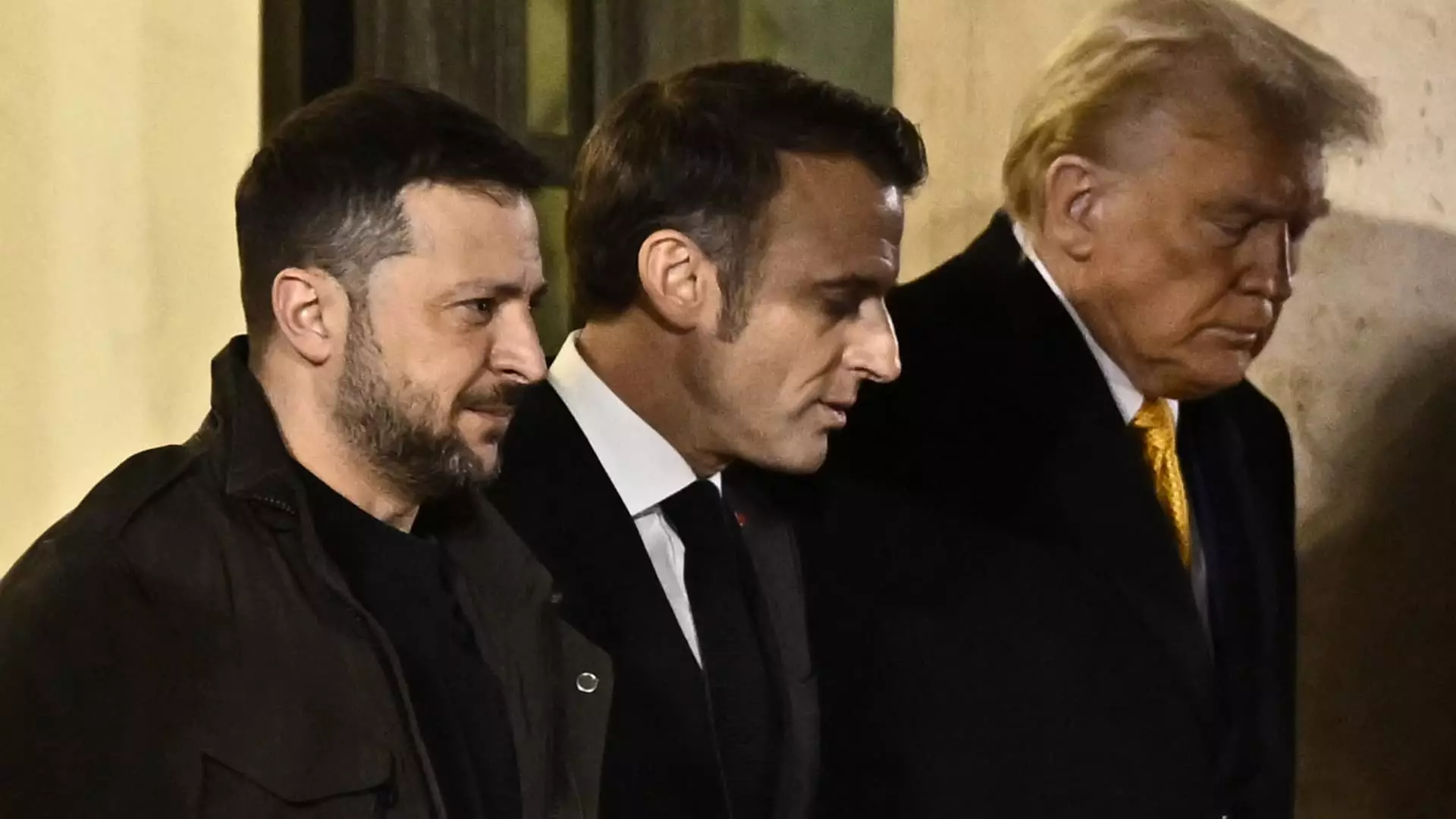The ongoing conflict between Russia and Ukraine has captured global attention, not only due to the humanitarian crisis it has precipitated but also because it raises significant geopolitical implications. As peace talks gain traction, Europe’s stake in these negotiations appears questionable. This uncertainty stems from a perceived sidelining by the United States, amplified by recent developments that cast doubt on Brussels’s involvement in shaping a resolution to the near three-year war.
In a bid to reclaim a semblance of influence, European leaders convened an emergency summit in Paris. French President Emmanuel Macron took the initiative, realizing that aspirations for European participation in the peace talks were jeopardized during the Munich Security Conference. The summit brought together representatives from key European nations, including Germany and Poland, reflecting a collective determination to assert their interests in the proceedings. However, the fundamental question remains: can Europe secure a meaningful role in negotiations that may decisively shape the continent’s future?
The U.S.-Russia Dynamics: A Glaring Omission
The United States, under the direction of officials like Marco Rubio, is poised to initiate discussions with Russia’s Sergei Lavrov in Saudi Arabia. However, the silence surrounding Ukraine’s inclusion in these dialogues is deafening. Ukrainian President Volodymyr Zelenskyy has publicly stated his government’s exclusion from the initial negotiations, asserting that talks about Ukraine conducted without Ukrainians are inherently futile. This disconnection begs the question of whether the U.S. approach, which seems to favor a more streamlined negotiation format, may inadvertently overlook the essential nuances of the conflict.
Perceptions of a Coalition: Allies or Bystanders?
As discussions unfold, it is crucial to analyze how European allies perceive their role. U.S. Special Presidential Envoy Keith Kellogg’s remarks about avoiding a “large group discussion” suggest that the U.S. may favor a more isolated negotiation process. This poses a critical challenge for Europe, which has always viewed collective action as essential in addressing geopolitical crises. The skepticism expressed by Russia’s Lavrov regarding European involvement further complicates matters; it signals a reluctance to engage with a coalition that may introduce additional complexities into already fraught discussions.
Europe’s Strategic Perspective: The Call for Involvement
The European Union’s foreign policy chief, Kaja Kallas, emphasized the necessity for Europe’s participation in the peace process. Her assertion that a sustainable peace agreement would require the active involvement of Ukrainians and Europeans underscores the essential role that local actors play in any resolution. The suggestion that the absence of Europe would render any agreement ineffective not only speaks to the geographical realities of the conflict but also highlights the need for inclusivity in international diplomacy. Thus, it becomes imperative for European leaders to articulate their stakes and to press for a more conciliatory stance that recognizes their value in achieving peace.
The presence of leaders like U.K. Prime Minister Keir Starmer at the Paris summit gives hope for a concerted European voice in forthcoming negotiations. Starmer’s commitment to facilitate communication between Brussels and Washington reflects a willingness to bridge the gap that seems to be widening in the context of the peace talks. His readiness to put British forces on the ground advocates for a proactive stance in safeguarding European security. Such actions may instigate a reassessment of Europe’s defense commitments in light of growing tensions in Eastern Europe.
Despite the urgency for intervention, there also lies a tangible risk of fragmentation within Europe. Differing national interests can easily drive wedges between allies, undermining the collective bargaining power that has historically empowered Europe in global negotiations. As NATO Secretary General Mark Rutte asserted the need to reassess defense spending, the question remains whether this awareness translates into coherence in policy and strategy among European allies in the upcoming negotiations.
Europe stands at a crossroads regarding its involvement in the Russia-Ukraine peace talks. The efforts to reclaim its significance in these discussions must be met with a united front and a strategic understanding of the intricate geopolitical dynamics at play. As negotiations are poised to recommence, the need for European leaders to articulate their positions clearly and advocate aggressively for their roles becomes paramount. Only through a cohesive strategy can Europe hope to emerge from the shadows and assertively engage in shaping the peace process that lies ahead.



Leave a Reply